If you’re looking for a healthier alternative to traditional sodas and other sugary drinks, you may have come across Zevia. This zero-calorie soda is sweetened with natural ingredients like stevia and erythritol, rather than sugar or artificial sweeteners.
Zevia claims to offer the same great taste as traditional sodas, but without the negative health effects. In this article, we’ll take a closer look at Zevia and its ingredients, explore its potential health benefits, and discuss what medical and nutrition experts have to say about this product.
By the end, you’ll have a better understanding of whether Zevia is a healthy choice for your beverage needs.
What is Zevia?
Zevia is a brand of zero-calorie, sugar-free soft drinks that are sweetened with stevia, a plant-based sweetener, and/or erythritol, a sugar alcohol. The beverages are designed to be a healthier alternative to traditional sodas, which are often high in sugar and calories.
Zevia offers a wide variety of flavors, including cola, ginger ale, lemon-lime, cream soda, and more, and is available in both cans and bottles. In addition to soft drinks, Zevia also offers energy drinks, mixers, and sparkling water.
The brand is marketed as a healthier, more natural alternative to traditional soda, and is often marketed towards health-conscious consumers.
Nutrition Facts of Zevia
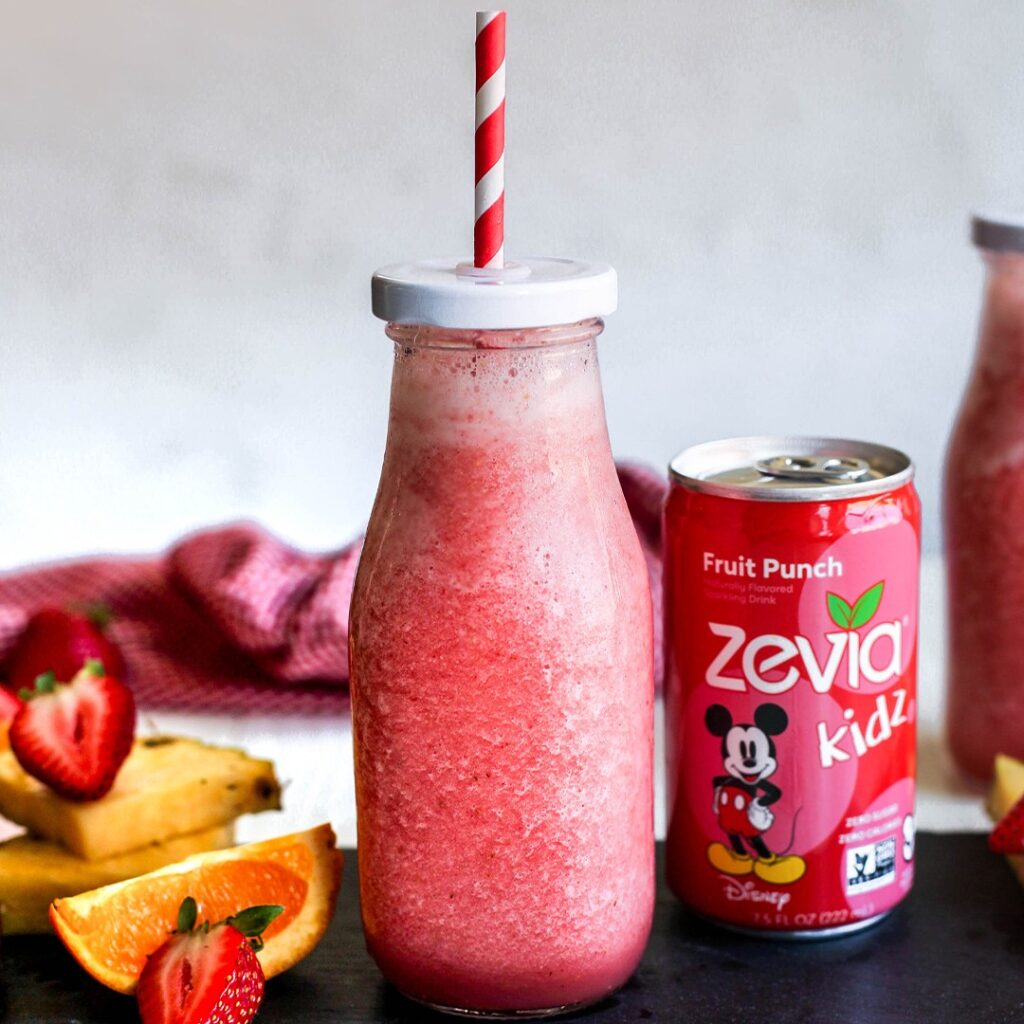
Zevia is a zero-calorie soda sweetened with natural ingredients, rather than sugar or artificial sweeteners.
Here is a breakdown of the nutritional facts and ingredients in a typical can of Zevia:
Nutrition Facts:
Serving Size: 1 can (12 fl oz)
- Calories: 0
- Total Fat: 0g
- Sodium: 20mg
- Total Carbohydrates: 0g
- Total Sugars: 0g
- Protein: 0g
Ingredients:
- Carbonated Water: This is simply water that has been infused with carbon dioxide gas, giving Zevia its characteristic fizz.
- Stevia Leaf Extract: Stevia is a natural sweetener that comes from the leaves of the Stevia rebaudiana plant. It is much sweeter than sugar, but has zero calories and does not raise blood sugar levels.
- Tartaric Acid: This is a naturally occurring organic acid that is often used as a flavoring agent in foods and drinks.
- Natural Flavors: Zevia uses a blend of natural flavors to give its sodas their unique taste. These flavors are derived from plant-based sources like fruits, vegetables, and spices.
- Caffeine: Zevia offers some flavors that contain caffeine, which is a natural stimulant that can help improve alertness and concentration.
- Citric Acid: This is another naturally occurring organic acid that is commonly used in food and drink products as a preservative and flavoring agent.
- Reb A (Stevia Extract): Reb A is a specific extract from the stevia plant that is even sweeter than regular stevia extract. It is often used in very small amounts to provide additional sweetness to foods and drinks.
- Malic Acid: This is another naturally occurring organic acid that is often used in foods and drinks as a flavoring agent.
- Zevia uses all natural ingredients and is free from artificial sweeteners and preservatives. It is also gluten-free, vegan, and Non-GMO Project verified.
Pros and Cons
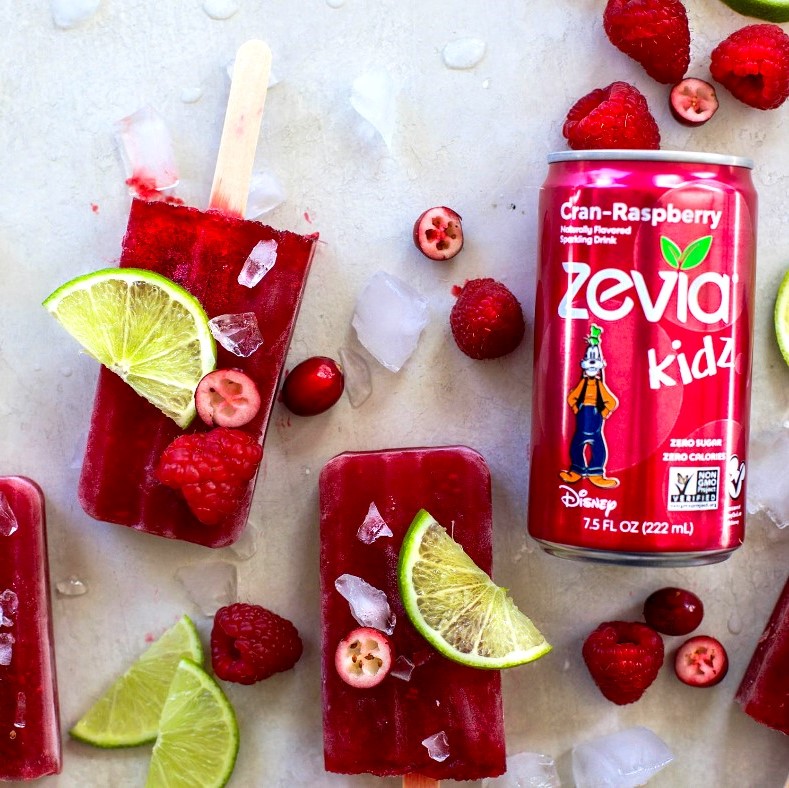
Pros:
- Low in sugar and calories: Zevia drinks contain no sugar or calories, which can be beneficial for people looking to reduce their sugar and calorie intake.
- No artificial sweeteners or colors: Zevia products are made with natural sweeteners and colors, which can be appealing to people looking to avoid artificial additives.
- Wide variety of flavors: Zevia offers a wide variety of flavors, which can be helpful for people looking for a low-calorie alternative to traditional sodas.
- Non-GMO and gluten-free: Zevia products are non-GMO and gluten-free, which may be important for people with certain dietary restrictions.
Cons:
- Contains sugar alcohols: Zevia drinks are sweetened with stevia and/or erythritol, which are sugar alcohols that can cause digestive issues in some people.
- No nutritional value: Zevia products do not contain any significant vitamins or minerals, which means they should not be relied upon as a source of nutrition.
- Expensive: Zevia products can be more expensive than traditional sodas and other beverages, which may not be accessible or affordable for everyone.
- Can have a different taste: Some people may find that Zevia drinks have a different taste than traditional sodas, which may take some getting used to.
- Possible side effects: Several new studies have criticized Erythritol due to a noticeable correlation between adverse cardiac events and thrombosis. An older study also revealed that excessive amounts of erythritol may increase risks of nausea and stomach rumbling.
Overall, Zevia can be a good option for people looking to reduce their sugar and calorie intake, as well as avoid artificial additives.
However, it’s important to be aware of the potential digestive issues caused by sugar alcohols, as well as the lack of nutritional value and higher cost of Zevia products compared to traditional sodas.
Health Benefits of Zevia
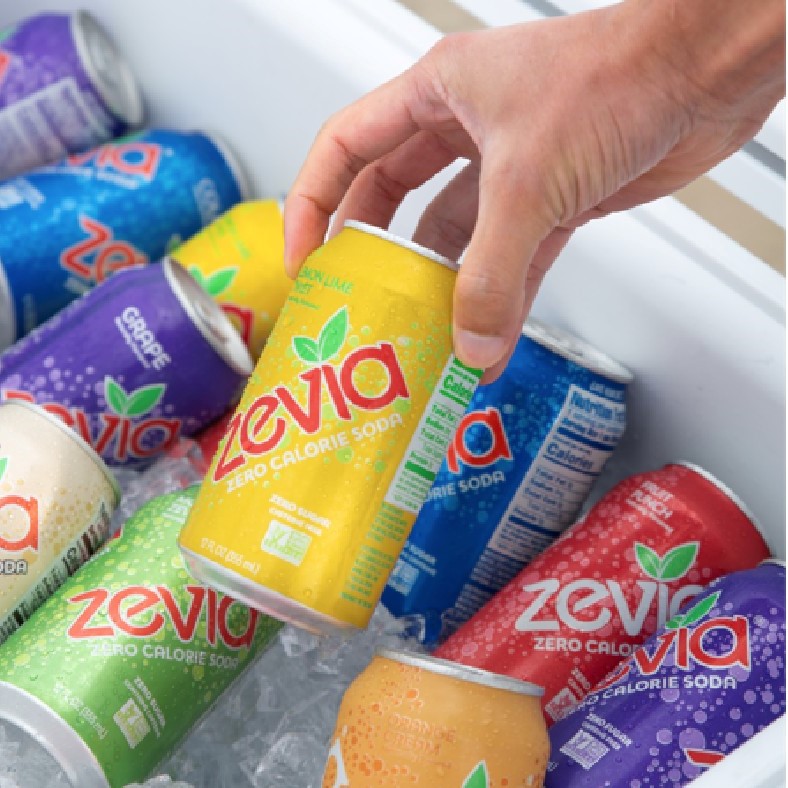
Zevia is a popular brand of zero-calorie soda that is sweetened with stevia, an all-natural, plant-based sweetener.
Here are some potential health benefits of consuming Zevia:
- Low in calories: Zevia contains zero calories, making it a great alternative to traditional soda that is loaded with sugar and calories. This can be beneficial for those looking to manage their weight or reduce their calorie intake.
- No artificial sweeteners: Zevia is sweetened with stevia, which is an all-natural, plant-based sweetener. This is a healthier alternative to artificial sweeteners like aspartame and sucralose, which have been associated with negative health effects.
- May help with blood sugar control: Stevia has been shown to help regulate blood sugar levels in people with diabetes, according to a study published in the journal Evidence-Based Complementary and Alternative Medicine.
- May improve gut health: Zevia contains stevia which can help inhibit the growth of pathogens and improve digestive health.
What Do Medical Experts Say About Zevia?
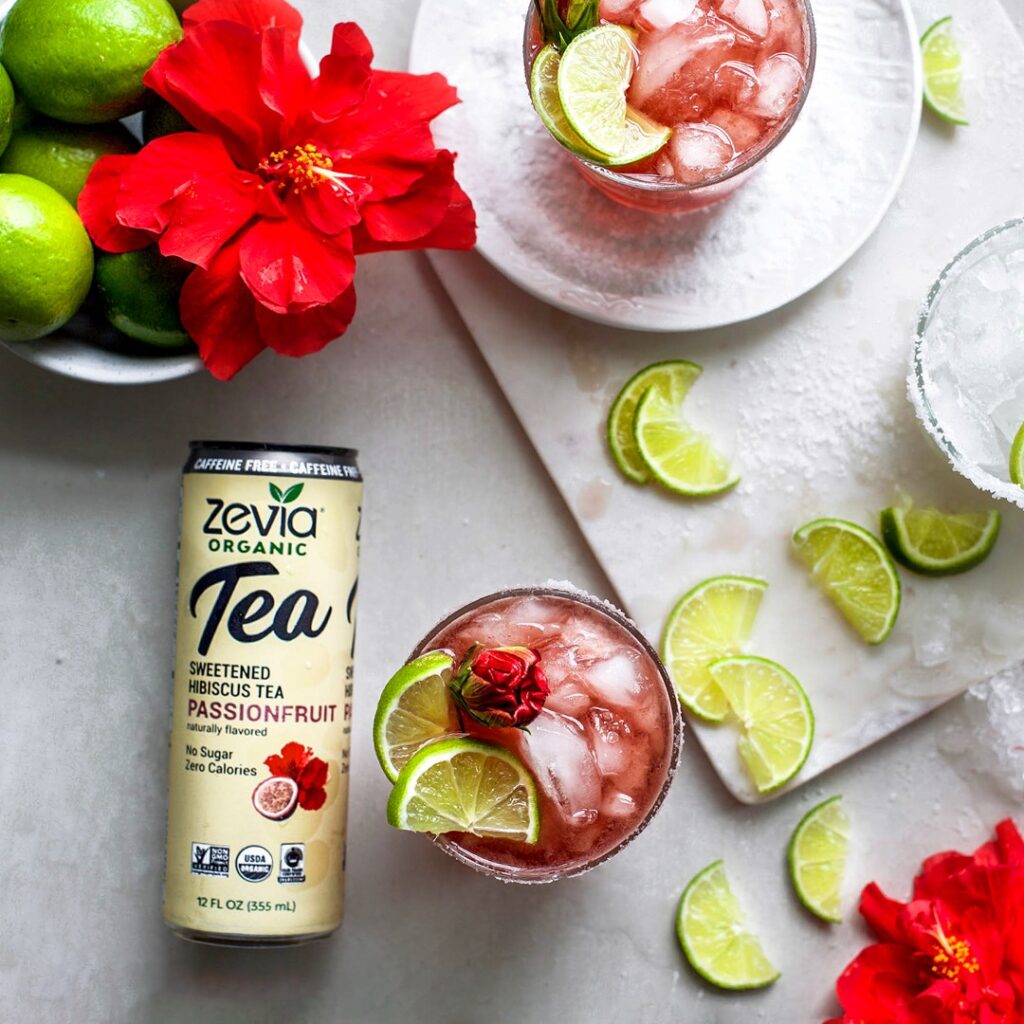
There is limited research specifically on Zevia, but medical experts generally agree that choosing zero-calorie drinks sweetened with natural ingredients over sugar-sweetened beverages is a healthier choice. Here are a few quotes from medical professionals:
- Sweetened low-calorie drinks can help with weight loss. “Drinking calorie-free beverages like water, unsweetened tea, and Zevia can help people lose weight and improve their health.” – Dr. Melina Jampolis, board-certified physician nutrition specialist.
- “When it comes to drinking soda, it’s best to choose one that doesn’t have sugar or calories. Options like Zevia…use natural sweeteners like stevia and erythritol.” – Dr. Keith Roach, board-certified internist
- “A better choice for a refreshing beverage would be water or seltzer or even Zevia, which is sweetened with stevia and has no calories.” – Dr. Andrew Weil, integrative medicine physician
- “Stevia has been shown to have several health benefits, such as reducing blood sugar and blood pressure levels.” – Natalie Olsen, RD, LD, ACSM EP-C
- “Erythritol is considered safe to consume in moderation, and it may even have health benefits like reducing the risk of dental cavities and aiding in weight loss.” – Kelli McGrane, MS, RD
- “Xylitol is a low-calorie sweetener that may help reduce the risk of tooth decay and has a lower glycemic index than table sugar.” – Kelli McGrane, MS, RD
While medical experts generally agree that zero-calorie, natural sweetener beverages like Zevia are a healthier choice than sugar-sweetened beverages, it is important to consume them in moderation and as part of a balanced diet.
Scientific Studies on Zevia
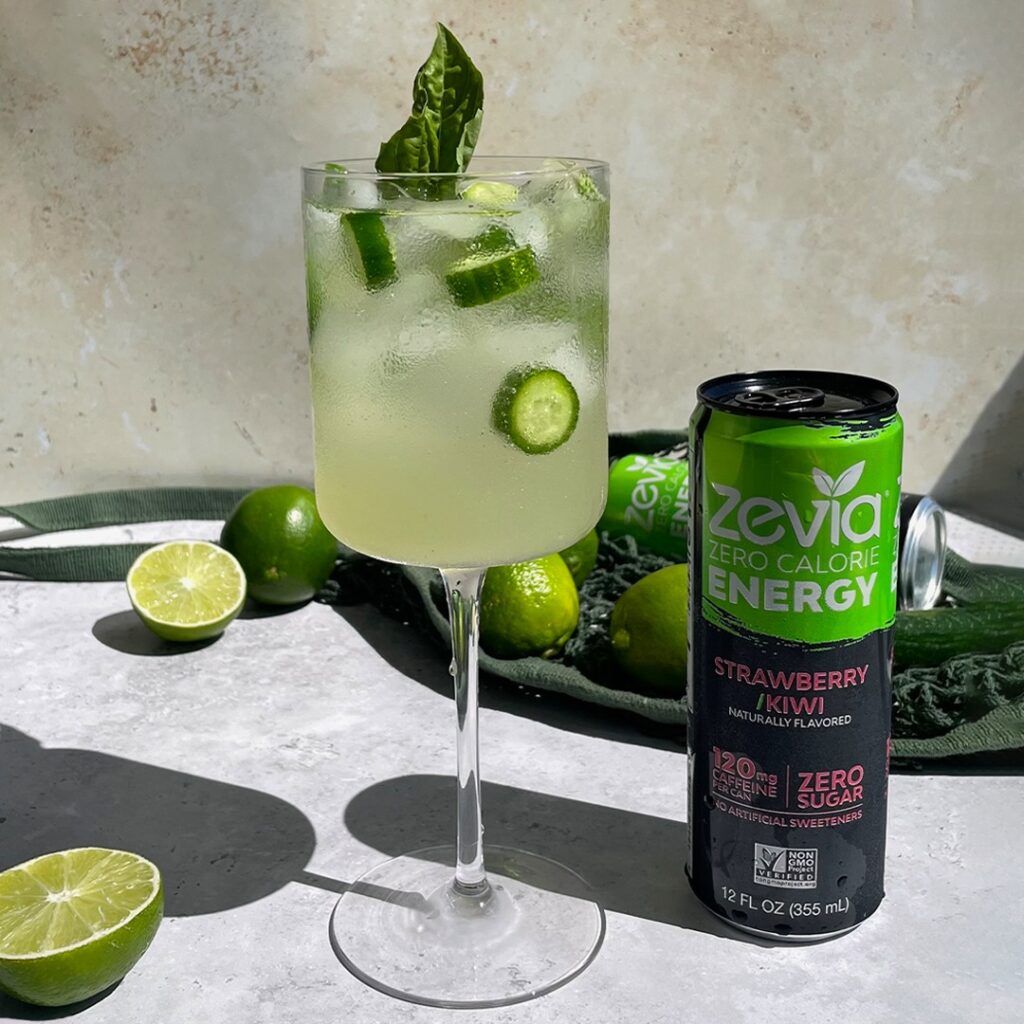
There are limited studies specifically on Zevia, as it is a relatively new product. However, here are a few studies that have examined the health effects of the natural sweeteners used in Zevia:
- In a 2010 study, researchers compared the effects of stevia, aspartame, and sucrose (table sugar) on food intake, satiety, and postprandial glucose and insulin levels in healthy adults. They found that stevia and aspartame both reduced food intake and blood sugar and insulin levels compared to sucrose.
- A 2015 review of studies published in the Journal of Medicinal Food found that stevia may have potential health benefits, including blood sugar control, blood pressure reduction, and antioxidant properties.
- In a 2016 study, researchers compared the effects of erythritol (a natural sweetener used in Zevia) and xylitol on dental plaque accumulation in healthy adults. They found that erythritol was more effective at reducing plaque than xylitol.
- Erythritol may have potential health benefits, including blood sugar control and antioxidant properties. However, the authors note that more research is needed to fully understand these potential benefits.
- A 2020 study published in the journal Foods evaluated the sensory properties and consumer acceptance of Zevia compared to a sugar-sweetened beverage and a beverage sweetened with a blend of natural sweeteners. The researchers found that Zevia was well-liked by participants and had similar sensory properties to the sugar-sweetened beverage.
While these studies provide some insight into the potential health effects of the natural sweeteners used in Zevia, more research is needed to fully understand the impact of consuming Zevia specifically.
Who Should Avoid Zevia?
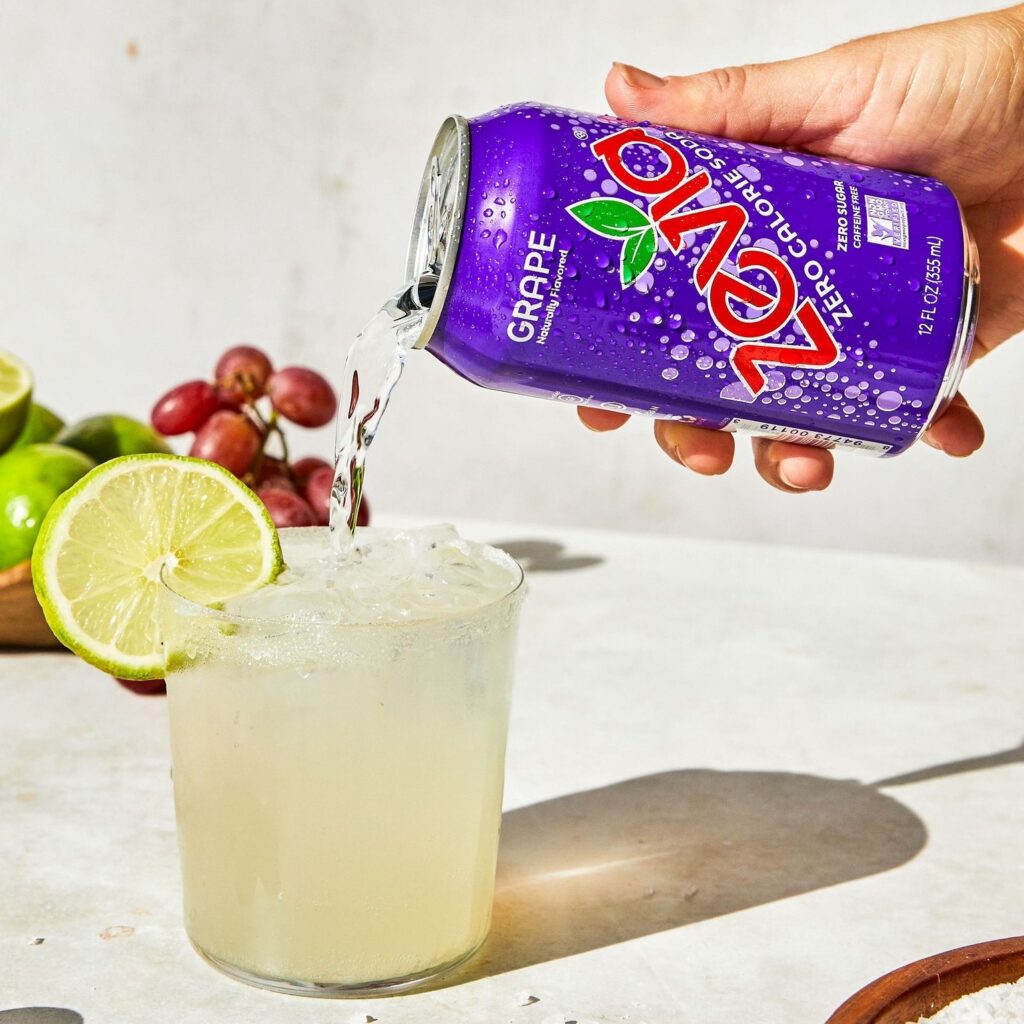
Zevia is generally considered safe for consumption for most people, but there are some groups who should avoid it or consume it with caution. Here are some examples:
- People with allergies to any of the ingredients in Zevia should avoid it.
- People with a sensitivity to sugar alcohols like erythritol or xylitol may experience digestive issues if they consume too much.
- People with a history of kidney stones should avoid Zevia that contains citric acid, as it may increase the risk of kidney stones formation.
- People with certain medical conditions, such as diabetes or insulin resistance, should be cautious with Zevia or any other sweetened beverage, as they may still have an impact on blood sugar levels.
It is important to note that these recommendations are based on general health concerns related to the ingredients in Zevia, rather than specific studies on the product itself.
Alternatives to Zevia
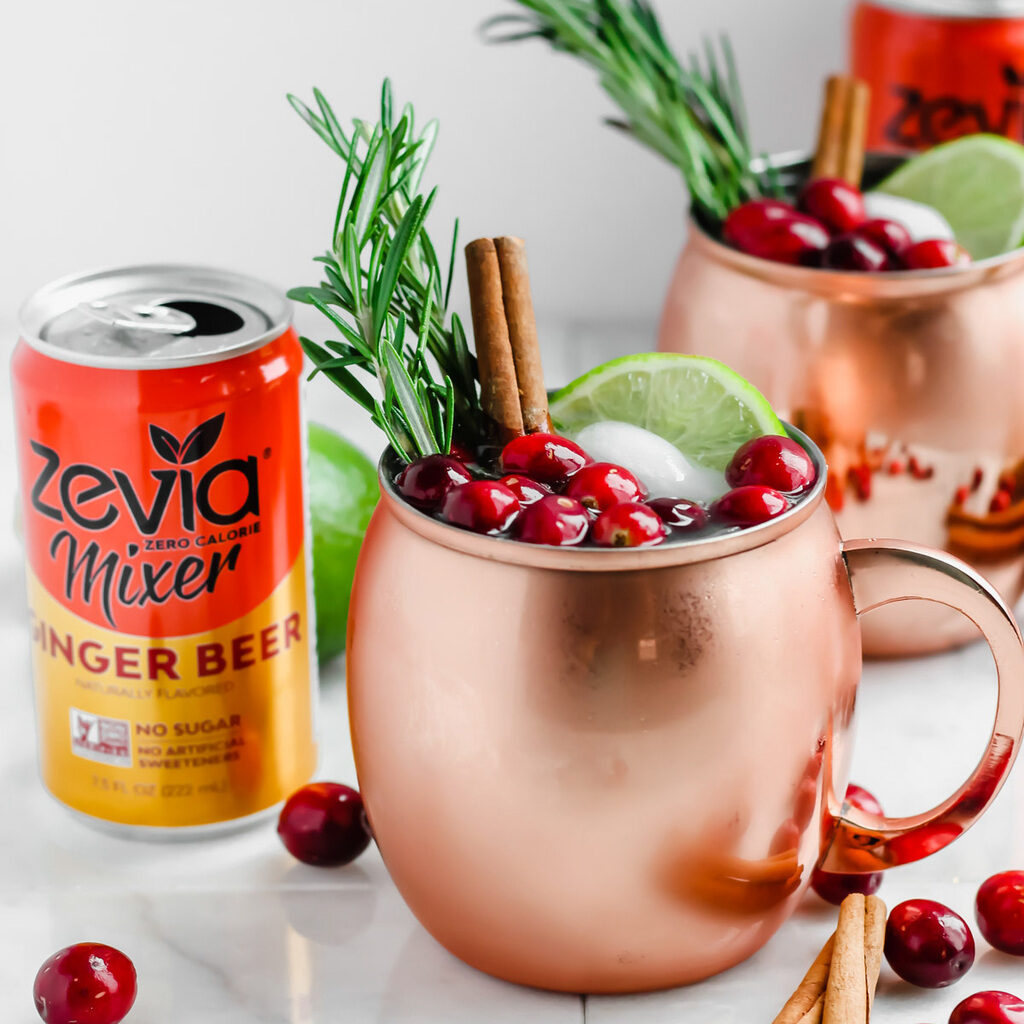
Here are three alternatives to Zevia:
- LaCroix: LaCroix is a brand of sparkling water that comes in a variety of flavors. It is calorie-free, sugar-free, and made with natural flavors. LaCroix does not contain any artificial sweeteners, but some varieties may contain citric acid.
- Bai: Bai is a brand of flavored water that is sweetened with erythritol and stevia. It is low in calories and sugar, and contains antioxidants from fruit extracts. Bai comes in a variety of flavors, including some that are caffeinated.
- Hint: Hint is a brand of flavored water that is made with natural fruit essences and contains no sweeteners or calories. It is a good option for people who want a beverage with flavor but without any added sugar or sweeteners.
It’s important to note that all of these options, like Zevia, are not the same as traditional sugary sodas or juices and are generally considered healthier alternatives.
FAQ

Is Zevia keto-friendly?
Yes, Zevia drinks are keto-friendly, as they are free from sugar and contain no more than 2 grams of net carbs per serving.
Can I drink Zevia while pregnant?
According to the American Pregnancy Association, stevia has been granted the GRAS (generally recognized as safe) rating by the FDA, which deems it safe to consume during pregnancy.
However, it’s best to consult your doctor before consuming Zevia or any other product containing sugar alcohols during pregnancy.
Does Zevia contain caffeine?
Some Zevia products contain caffeine, while others do not. It’s important to read the label carefully to determine if the product you are consuming contains caffeine.
Is Zevia safe for children?
Zevia products are not recommended for children under 4 years old, as they may not be able to tolerate the sugar alcohols used in the drinks.
Are Zevia drinks carbonated?
Yes, most Zevia drinks are carbonated, giving them a similar texture and mouthfeel to traditional sodas.
Is Zevia gluten-free?
Yes, Zevia products are gluten-free, making them a good choice for people with celiac disease or gluten intolerance.
Does Zevia contain any artificial sweeteners or colors?
No, Zevia products are free from artificial sweeteners and colors, making them a healthier alternative to traditional sodas.
Conclusion: Is Zevia Healthy?
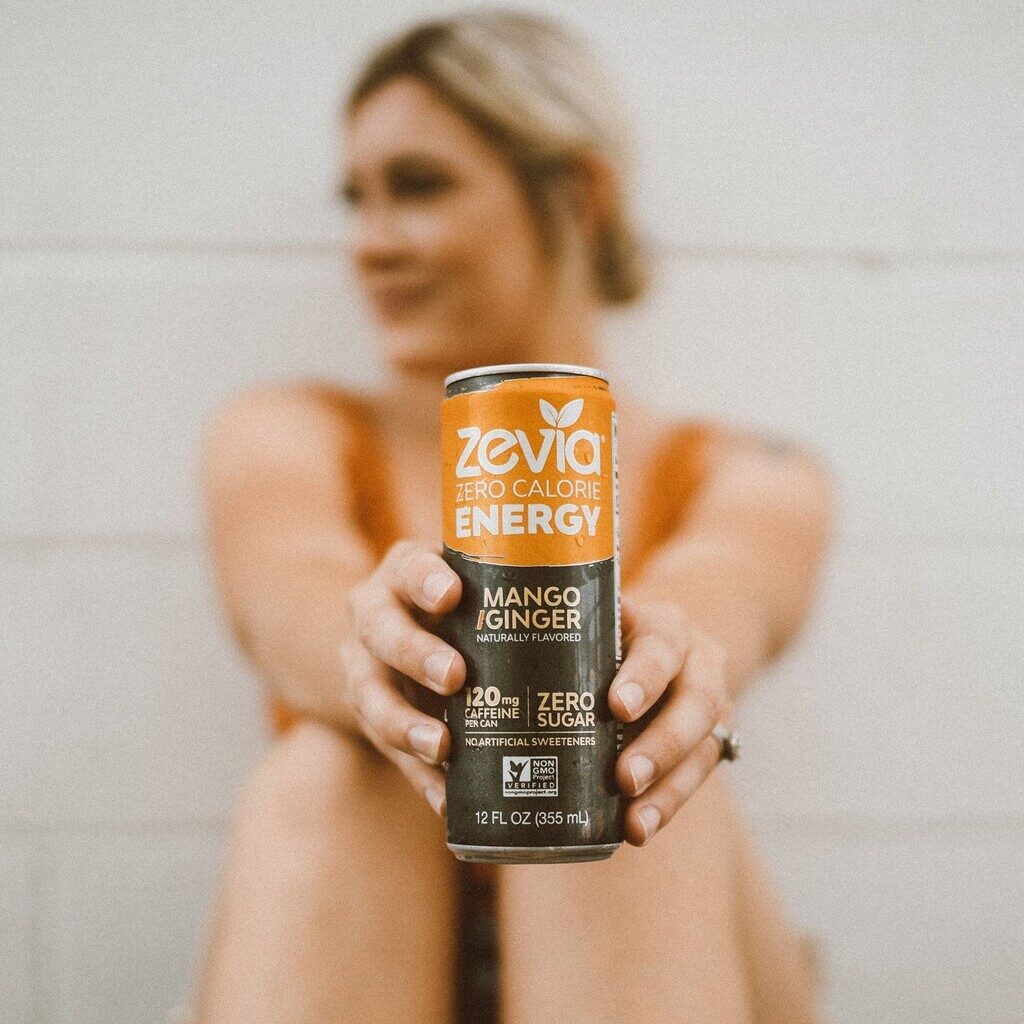
Zevia can be a healthy alternative to traditional sodas and other sugary drinks. It is free from sugar, artificial sweeteners, and artificial colors, and is made with natural flavors. Zevia drinks are also non-GMO and gluten-free.
However, it is important to be aware that Zevia products are sweetened with sugar alcohols, which can cause digestive issues in some people.
Zevia drinks should not be considered a replacement for a healthy, balanced diet, but can be a good choice for people looking to reduce their sugar and calorie intake.
As with any food or drink, moderation is key, and it’s important to listen to your body and any potential side effects that may arise.
References:
- Ajami, M., Seyfi, M., Abdollah Pouri Hosseini, F., Naseri, P., Velayati, A., Mahmoudnia, F., Zahedirad, M., & Hajifaraji, M. (2020). Effects of stevia on glycemic and lipid profile of type 2 diabetic patients: A randomized controlled trial. Avicenna journal of phytomedicine. Retrieved April 13, 2023, from https://www.ncbi.nlm.nih.gov/pmc/articles
- Witkowski M;Nemet I;Alamri H;Wilcox J;Gupta N;Nimer N;Haghikia A;Li XS;Wu Y;Saha PP;Demuth I;König M;Steinhagen-Thiessen E;Cajka T;Fiehn O;Landmesser U;Tang WHW;Hazen SL; (n.d.). The artificial sweetener erythritol and cardiovascular event risk. Nature medicine. Retrieved April 13, 2023, from https://pubmed.ncbi.nlm.nih.gov/36849732/
- Kasti, A. N., Nikolaki, M. D., Synodinou, K. D., Katsas, K. N., Petsis, K., Lambrinou, S., Pyrousis, I. A., & Triantafyllou, K. (2022, March 30). The effects of stevia consumption on gut bacteria: Friend or foe? Microorganisms. Retrieved April 13, 2023, from https://www.ncbi.nlm.nih.gov/pmc/articles/PMC9028423/
- Robert H. Shmerling, M. D. (2021, March 22). Zero weight loss from zero calorie drinks? say it ain’t so. Harvard Health. Retrieved April 13, 2023, from https://www.health.harvard.edu/blog
- Nayak, P. A., Nayak, U. A., & Khandelwal, V. (2014, November 10). The effect of xylitol on dental caries and Oral Flora. Clinical, cosmetic and investigational dentistry. Retrieved April 13, 2023, from https://www.ncbi.nlm.nih.gov/pmc/articles/PMC4232036/
- Anton, S. D., Martin, C. K., Han, H., Coulon, S., Cefalu, W. T., Geiselman, P., & Williamson, D. A. (2010, August). Effects of stevia, aspartame, and sucrose on food intake, satiety, and postprandial glucose and insulin levels. Appetite. Retrieved April 13, 2023, from https://www.ncbi.nlm.nih.gov/pmc/articles/PMC2900484/
- Ruiz-Ruiz, J. C., Moguel-Ordoñez, Y. B., Matus-Basto, A. J., & Segura-Campos, M. R. (2015, December). Antidiabetic and antioxidant activity of stevia rebaudiana extracts (var. morita) and their incorporation into a potential functional bread. Journal of food science and technology. Retrieved April 13, 2023, from https://www.ncbi.nlm.nih.gov/pmc/articles/PMC4648875/
- T;, N. K. N. K. O. (n.d.). Serum glucose and insulin levels and erythritol balance after oral administration of erythritol in healthy subjects. European journal of clinical nutrition. Retrieved April 13, 2023, from https://pubmed.ncbi.nlm.nih.gov/8039489/
- F;, S. D. L. A. B. F. B. (n.d.). Gastrointestinal tolerance of erythritol and xylitol ingested in a liquid. European journal of clinical nutrition. Retrieved April 13, 2023, from https://pubmed.ncbi.nlm.nih.gov/16988647/
- Editor. (2022, May 5). Artificial Sweeteners and pregnancy. American Pregnancy Association. Retrieved April 13, 2023, from https://americanpregnancy.org/healthy-pregnancynd,safe
Next, check out some recent reviews you might find useful:

Leave a Reply